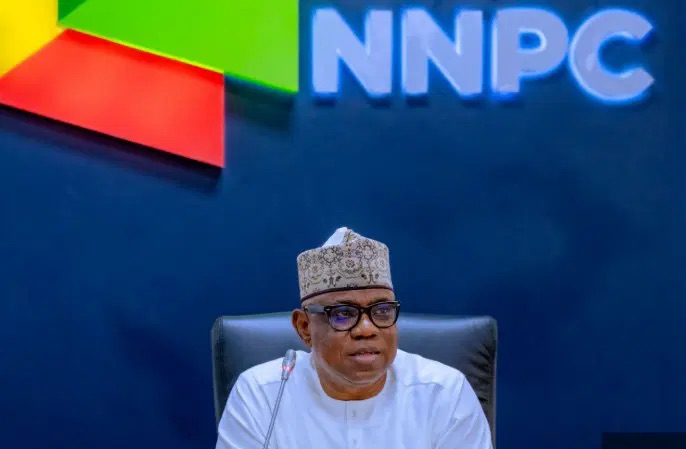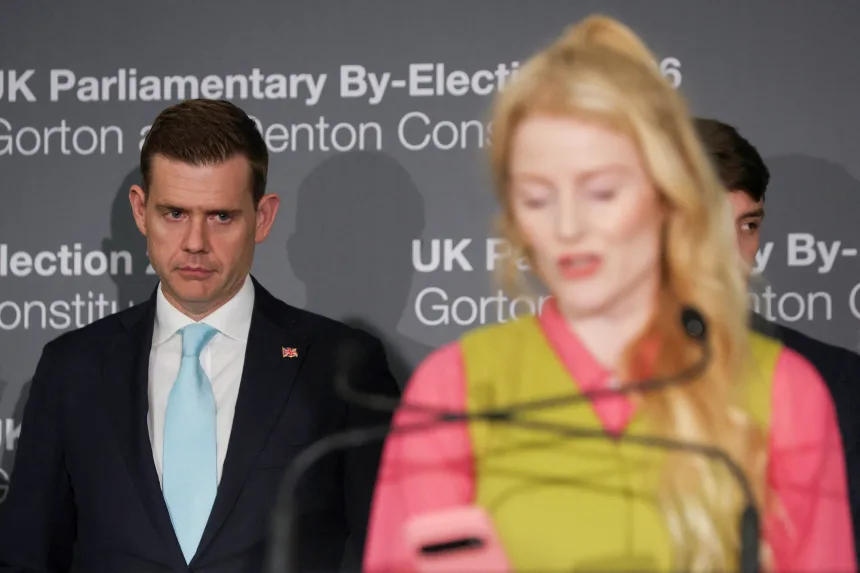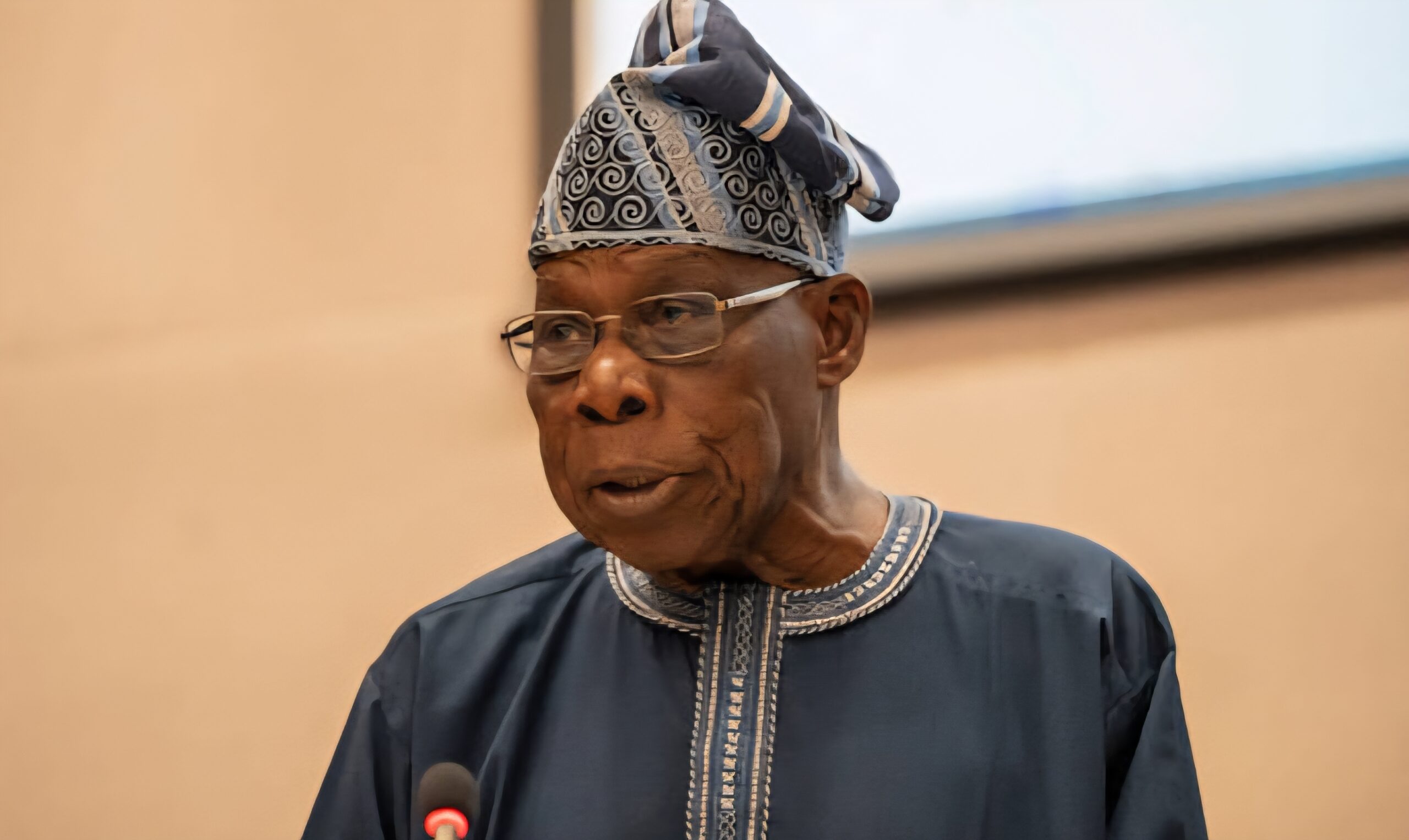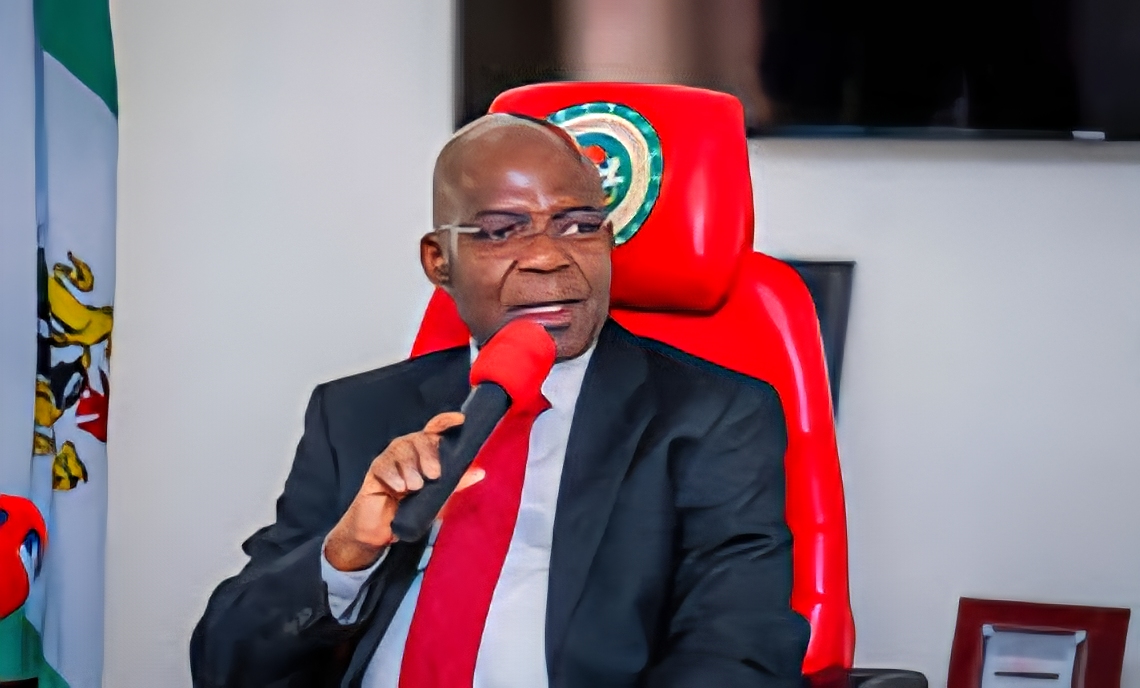Now Reading: Fresh controversy over planned sale of refineries
-
01
Fresh controversy over planned sale of refineries
Fresh controversy over planned sale of refineries

The plan by the Bureau of Public Enterprises (BPE) to privatise or concession the nation’s three refineries located in Port Harcourt, Kaduna and Warri appears to have met with stiff resistance from different quarters, with many stakeholders describing it as ill-timed and could further worsen the poverty situation of the average Nigerian.
The BPE had on Tuesday announced plans to privatise or concession 91 state-owned enterprises, including the refineries, assuring that each transaction would undergo a rigorous and transparent process with input from technical, financial, and legal matters.
But major stakeholders in the petroleum industry have opposed the move, describing it as ill-timed and an abuse of the sensibility of Nigerians who have been fooled many times in the past, as the nation’s resources repeatedly gone down the drain through the turn-around-maintenance (TAM) of the refineries.
A similar idea was earlier mooted by the Group Chief Executive Officer (GCEO) of the Nigerian National Petroleum Company (NNPC) Ltd, Mr Bayo Ojulari, when he hinted that the state oil firm was considering selling the nation’s four refineries located in Port Harcourt, Warri and Kaduna. The refineries have a nameplate production capacity of 445,000 barrels per day.
Ojulari had on the sidelines of a recent Organisation of Petroleum Exporting Countries (OPEC) 9th international seminar in Vienna, Austria, dropped the bombshell. The GCEO in an interview with Bloomberg, said the plan to sell the refineries was predicated on the fact that it was becoming increasingly a ‘bit more’ complicated to revamp the state-owned refineries. He added that the NNPC is currently reassessing its refineries strategies and aims to finalise the review by year-end.
“We made quite a lot of investment over the last several years and brought in a lot of technologies. We’ve been challenged. Some of those technologies have not worked as we expected so far. But when you’re refining with very old refineries that have been abandoned for some time, what we’re finding is that it’s becoming a little bit more complicated.
“So we’re reviewing all our refinery strategies now. We hope that before the end of the year, we’ll be able to conclude that review. That review may lead us to doing things slightly differently.”
Ojulari further said NNPC remains uncertain whether the review will result in the sale of the refineries.
“But what we’re saying is that sale is not out of the question. All the options are on the table, to be frank, but that decision will be based on the outcome of the reviews we’re doing now,” he said.
On July 30, Ojulari said the NNPC had no plans to sell off the Port Harcourt refinery, reaffirming the government’s commitment to completing the high-grade rehabilitation.
President of the Dangote Industries Limited, Alhaji Aliko Dangote, earlier echoed the sentiments of Ojulari, when he expressed doubts if the NNPC Ltd. refineries could ever work again. He disclosed that despite about $18 billion invested in the rehabilitation of the refineries, the asset may never come on stream again.
Last week, Ojulari re-echoed the same plan when he received a delegation from the Petroleum and Natural Gas Senior Staff Association of Nigeria (PENGASSAN), saying that the decision to shut down the Port Harcourt refinery was because the company was losing about N500 million monthly. He said rehabilitating the refinery has been challenging due to years of neglect.
“When you fix one thing, the other thing is still there. So, it’s been very difficult to get it. When I resumed, one of the first priorities I focused on was the refineries, to have a quick review, to see whether we could quickly fix it. What I found is that we were losing between N300 million to N500 million on a monthly basis in the overall refinery.”
He also disclosed that the NNPCL, therefore, decided to halt rehabilitation at the refinery, adding, “we’ve been working assiduously to quickly find a way.”
At the heart of the outrage among Nigerians and industry stakeholders is the recent $1.5 billion spent on the refurbishment of Port Harcourt Refinery, which resumed operations in November 2024 after series of postponements only to be shut down in May 2025, for what the NNPC management described as “planned maintenance and sustainability assessment.”
The Federal Government, in its efforts to ensure that the other two refineries come on stream, set aside $740,669 for the rehabilitation of the Kaduna Refinery and $656,963 for the Warri Refinery. Regrettably, investments in the refineries appear to have gone down the drain as none is currently producing as at September 2025.
In 2007, Bluestar Consortium, led by Dangote bought the refineries from the regime of former President Olusegun Obasanjo, but the sale was later reversed as a result of wild allegations of irregularity in the privatisation process when President Umar Yar’ Adua took over.
Commenting on the development, the National Public Relations Officer (PRO) of the Independent Petroleum Marketers Association of Nigeria (IPMAN), Mr Chukwudi Akadike, told Saturday Sun, that the idea to put up the asset for sale was not a welcome development as it would lead to further inflation. Rather, he said, NNPC must ensure that the refineries come back on stream for the benefit of Nigerians and all stakeholders.
He warned that any attempt to either privatise or concession the refineries will further put a strain on the purchasing power of Nigerians as petroleum products would become more expensive.
“The people coming to take over the assets are businessmen and not charity organisations. All they would want to do is to maximise profit at the detriment of Nigerians.’’
He added that all those involved in the past rehabilitation of the failed refineries must be brought to justice. He queried how the $1.5 billion expended on the Port Harcourt Refinery by the immediate past NNPC Limited management went down the drain without anything to show for it, insisting that “all those involved in this fraud called refinery rehabilitation must be made to face the full wrath of the law. No one should be spared.’’
He said had it been the NNPC Ltd refineries were working; Nigerians would have a choice through multiple sources of petroleum products as against a single product source currently being experienced in the downstream sector.
He lamented that the refineries had become a strain on public finance, especially in the face of dwindling revenue accruable to the government. According to him, the billions already sunk into turnaround maintenance efforts had yielded no tangible results. He noted that IPMAN had earlier called for the declaration of a state of emergency in the refining sector, describing it as long overdue.
“NNPCL is a private investment owned by the Federal Government and it has been there for decades, supplying the needs of Nigerians. But in the last 15 years, it hasn’t been operational. The running cost is even higher than what it is earning in revenue or produce.’’
Ukadike disagreed with the idea of selling the refineries, saying they shouldn’t be scrapped. Rather, he advised before that the president should declare a state of emergency in the refining sector.
“Should they sell the refineries, is it spirits that would come and run them? If those that are coming to buy them can run the refineries, that means the refineries still have the potential to be functional.
“But the first consideration should be for the president to disband the NNPC Ltd management by sacking all those engineers working in the refineries and collecting salaries for years without anything to show for it.”
For his part, Chief Economist at SPM Professionals, Mr Paul Alaje, said his continuous advocacy against the opaqueness of the operations of NNPC Limited which have led to several attacks on his person is now beginning to manifest. He added that Nigerians have been serially fed with lies about the state of the refineries, which were never in any working condition.
Alaje corroborated the views of Akadike, saying before the refineries are privatised or concessioned, all those involved in fraud called refineries rehabilitation should be prosecuted.
“The only way for Nigerians to have comfort is to prosecute all those involved in the refinery fraud which gulped over $1.5 billion. Call all these people by their names and let them answer for the state monies in their possession.
“Unfortunately, it is not only the state resources that have been wasted in this failed venture, it is also about the denial of the future money that we ought to make as a country. Do you know the $1.5 billion for the rehabilitation of the refinery was a loan from Afreximbank? This loan we are to pay back through forward sale of our crude oil.
“What that means is that future oil that we have not even produced is the security for loans. So as we produce, we pay back with the loan. It is that bad that our future has been mortgaged.”
He maintained that in privatising the refineries, the government should still maintain a minimal interest of not more than 25 per cent for national integrity and energy security, warning that their interest should, however, not be involved in the management of the refineries because history has shown that they are bad managers.
On what should be the right step for the refineries, Alaje said two things are involved only if the BPE could be sincere in achieving it; avoid the sale of the refinery to external merchants who want the refinery dead so that Nigeria will continue to import petroleum products from Europe, America and Asia.
Also, he mentioned that BPE should avoid the temptation of giving the asset to friends and cronies of people in government who lack the technical and financial capacity to run the refineries.
“If these two pitholes could be avoided, then we may say we are gradually getting to the end of the tunnel. But anything short of this would mean dancing around circles.”Commenting, energy policy expert and Partner Bloomfield Law Practice, Mr Ayodele Oni, corroborated the views of Akadike, saying he is for justice taking its course and law should be applied equally without fear or favour, adding that if anyone is indicted, they should face the full wrath of the law.He further explained that, NNPC Ltd’s strategic move to divest its interests in the old refineries located in Port Harcourt, Warri, and Kaduna, despite having invested an estimated $1.5 billion with limited operational success, represents a significant and, arguably, overdue decision in Nigeria’s refining landscape.According to him, the decision seeks to acknowledge the persistent challenges and systemic inefficiencies inherent in government-operated refineries, which have consistently underperformed despite sustained efforts, including numerous Turn Around Maintenance initiatives.He maintained that, over an extended period, these refineries have not only failed to meet production and operational expectations but have, in fact, evolved into economic burdens that detract from the broader goals of national energy security and industrial sustainability. He said the proposal to transfer these assets into the hands of private-sector operators signals a critical shift towards leveraging market-driven management, technical expertise, and capital investment—elements that are essential for revitalising these facilities and unlocking their latent potential.
He stated that the planned divestment can be viewed as a pragmatic and necessary step towards restructuring Nigeria’s downstream petroleum sector as it offers an opportunity to inject efficiency, innovation, and profitability into assets that have long struggled under public sector stewardship, thereby fostering an environment more conducive to sustainable growth and enhanced energy self-sufficiency.
“The decision to sell Nigeria’s national refineries is, in principle, a positive and necessary move. Privatisation has the potential to breathe new life into these long-troubled assets and reduce the country’s heavy reliance on imported refined fuels. However, the success of this initiative hinges on a transparent and fair sale process—one that is free from political interference and conducted with the highest standards of accountability.
“Selling the refineries aligns with the government’s broader plan under the Petroleum Industry Act (PIA) to commercialise NNPC and encourage private sector participation. By opening ownership to capable and experienced investors, Nigeria stands to benefit from improved refinery operations, increased domestic fuel production, and strengthened energy security.
“Ultimately, if managed properly, this move could mark a turning point for Nigeria’s downstream petroleum sector—offering a chance to unlock efficiency, attract technical expertise, and create a more sustainable energy future for the country.’’
Oni, however, expressed the view that the timing of the proposal to sell the refineries appears closely linked to the intensified scrutiny of NNPC’s financial management by both the EFCC and the Nigerian National Assembly.
“With growing concerns about alleged mismanagement, this initiative can be seen as a strategic effort by NNPC Ltd to signal its commitment to greater transparency, accountability, and profitability in line with the provisions of the Petroleum Industry Act (PIA).
“If executed with credibility and openness, the sale could serve as a pivotal opportunity for the government to reshape the public narrative surrounding NNPC’s operations. It would demonstrate a genuine willingness to implement much-needed reforms and restore confidence among stakeholders and Nigerians alike.
“In my view, the divestment plan is more than just a business transaction—it represents a potential turning point for the governance and future direction of Nigeria’s oil sector.”
The energy expert hinted that, although no official list of prospective buyers has been made public, there are compelling signs that NNPC Ltd has initiated preliminary discussions with interested investors. He stressed that senior executives from NNPC have publicly expressed openness to private sector participation, signalling a clear willingness to attract capital and expertise.
“Additionally, at various international energy forums, NNPC representatives have alluded to possible asset divestments, further suggesting that engagement with potential suitors is underway.
“It is also likely that NNPC Ltd is in the process of finalizing key transaction details, including the structure of the sale, asset valuation, and the bidding framework, to ensure a transparent and competitive process. These developments point to a deliberate and strategic approach to attracting credible investors capable of revitalising Nigeria’s refining capacity.”
On what makes this proposal different from what former President Olusegun Obasanjo did with the transaction with Bluestar Consortium, the legal practitioner stated that, it is important to recognise that the regulatory and institutional landscape was markedly different at that time.
“Unlike then, the Petroleum Industry Act (PIA) had not yet been enacted, and NNPC had not undergone its legal transformation into a commercially oriented private limited liability company.
“Today, NNPC Ltd operates under corporate governance principles, with its assets no longer regarded as sovereign property in the traditional sense. This structural shift means that if the current sale is conducted with proper legal frameworks and due process, it would be far more resistant to reversal and significantly more appealing to credible investors—especially if the process remains free from political interference.”
He advised the management of NNPC Ltd to explore the options of a public-private partnership (PPP) or an outright sale to strategic investors.
Alternatively, he canvassed a joint venture model similar to NLNG’s structure, where the government holds a minority stake and does not interfere with operations could also strike a viable balance.
For his part, the National President of the Petroleum Products Retail Outlets Owners Association (PETROAN) of Nigeria (PETROAN), Billy Gillis-Harry, stated that the privatisation of the assets is a welcome development as it is the only reasonable decision to make, considering its history of inefficiencies.
“What we are looking for is efficiency. At the end of the day, if the refineries are working and private hands are the ones who will run it, that would be a very wonderful idea because we will not be spending so much money on doing very little or nothing.
“And for those that have stolen monies meant for the rehabilitation of the refineries, the government should do proper investigation to get everyone involved to account for whatever that must have taken. The investigation should go back to the former President Obasanjo regime when these expenditures that have yielded no result started.’’
Gillis-Harris, however, questioned the motives behind the timing of this conversation. “We need to be sure of what is driving this process and understand what the influence behind it is.”
He added” “If you go back a few months, PETROAN had done a very careful evaluation of the situation, and we had advised that privatisation of the refinery will be the best option. And we still maintain the same mindset.
“So if BPE comes around, it will take almost six months or thereabouts to get to the same conclusion. It only tells you that PETROAN has done a very well detailed empirical analysis. We do wish them well.”




